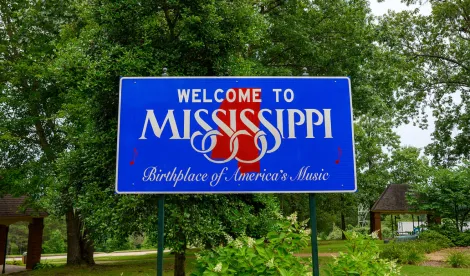This year, a number of state legislatures considered and passed legislation that creates a pass-through entity (PTE) tax as a workaround to the $10,000 cap on the state and local tax (SALT) itemized deduction. Nearly 30 states have enacted a PTE tax. Mississippi is one of the more recent states to join the ranks.
Beginning with this tax year, Mississippi will allow PTEs to elect to pay tax at the entity level rather than at the individual partner/member level. (See prior coverage here.) This election, passed in the 2022 Legislative Session, is designed to mitigate the impact of the federal limitation on itemized deductions for SALT. The Department of Revenue (DOR) recently issued Notice 08-22-001 to clarify several important election and compliance issues, but some uncertainty still exists as to exactly how the election will work.
PTEs contemplating the election should begin that process now in order to take the appropriate internal actions within the election time limits and to resolve any compliance issues or questions that are not addressed by the original bill or the DOR’s recent notice.
When and how to make an election
The election must be made on or before the 15th day of the third month following the close for the tax year for which the entity elects to be taxed as an electing PTE. This means most eligible entities will have until March 15, 2023, to make the election with respect to the 2022 calendar tax year. No election was available for the 2021 tax year because the legislation was not passed until after the election deadline for that year had passed.
The DOR will provide a new Pass-Through Entity Election Form, Form 84-381, which must be submitted within the applicable time period, but that form does not appear to be available on the DOR’s website at this time. Once made, the election shall be binding for the taxable year and all subsequent taxable years unless the election is revoked by the electing PTE by the same process and voting threshold used for making the election.
What vote is necessary for approval?
To make or revoke an election, there must be “a vote by or written consent of the members of the governing body of the entity as well as a vote by or written consent of the owners, members, partners or shareholders holding greater than fifty percent (50%) of the voting control of the entity, within the time prescribed in this subsection” (emphasis added). Thus, the approval must be made at two levels: Even though management decisions may be centralized in a board or other governing body, the latter vote must pass by a specified threshold and both votes must take place within a specified time frame.
It is important to note that this statutory election requirement supersedes and may be inconsistent with the voting rights and thresholds provided under an entity’s governance documents. For example, it is common for certain important elections to be approved by more than a 50% vote of the members, or that different members might have different voting or consent rights on those types of issues. Additionally, a strict reading of the statute may also pose questions regarding whether a simple manager governance structure constitutes a centralized board or “other governing body.” It also remains unclear how this election provision will operate in a tiered structure containing multiple PTEs, specifically whether the owner-level exemption is contingent on a tax payment having been made by that immediate PTE as opposed to one further up the chain.
Unfortunately, Notice 08-22-001 does not address or resolve these questions. Any entity whose governance structure might be inconsistent with these requirements should contact the DOR now, well in advance of the election deadline, to discuss what internal votes and approvals will be acceptable.
What returns will be filed?
Electing entities will file the Pass-Through Entity Tax Return, Form 84-105, but will check the “Electing Pass-Through Entity” box in order to be taxed at the entity level. The updated return form does not appear to be available on the DOR’s website at this time. A copy of the Pass-Through Entity Election Form, Form 84-381, should also be attached to the return. The Mississippi Schedule K-1, Form 84-132, for each owner, member, partner, or shareholder of the electing entity is also required to be attached to the return. The K-1s should have the “Electing Pass-Through Entity” box checked with the amount of tax paid by the electing entity for each partner provided on the K-1s.
Factor election into individual and entity estimated tax payments
The members of any electing PTE should adjust their estimated tax payments to reflect that those taxes will be paid at the entity rather than the individual level. The entity will now be required to make estimated payments if it has an annual income tax liability in excess of $200.
Estimates are due on or before the 15th day of the fourth, sixth, ninth, and 12th months of the income year and generally correspond to the federal deadlines. Payments should be submitted using the Pass-Through Entity Income Tax Voucher, Form 84-300. Estimated tax payments must not be less than 90% of the annual income tax liability. Any taxpayer that fails to file a return and pay the tax by the due date of the return or that underestimates the required amount could be liable for a penalty of 10% plus interest of 0.5% per month on underpayment of tax from the payment due date until paid or until the next payment due date, whichever is earlier.
Notice 08-22-001 recognizes that there may be complications with some of the early estimated payments. Any electing entity that receives a penalty notice for an underestimate on their 2022 first- and second-quarter estimated payments should contact the DOR to request abatement of any proposed penalties.
Does the election impact composite returns?
If an entity elects to pay tax at the entity level, it will no longer need to file a composite return. An entity cannot file as both. Per Notice 08-22-001, composite returns can be filed only on behalf of nonresident partners with no other activity in Mississippi other than that from the PTE. Once an entity begins to file a composite return, it must continue to file in that manner unless permission to change has been granted by the DOR or an election to file as an electing entity has been made.
Mechanics of the credit for taxes paid at the entity level
Each member of an electing PTE will receive and may claim a pro rata credit for any income taxes paid at the entity level. That credit will be reported on the member’s Mississippi K-1, which must be attached to the member’s return similar to that required for traditional claims for credits for taxes paid to other states. Mississippi will allow the members to claim similar entity-level taxes paid to other states as long as the appropriate support is included with the return. The failure to attach these forms historically has resulted in delayed processing of returns, temporary denials of refunds, and, in some cases, the issuance of assessment notices due to the disallowance of claimed but unsupported credits.
Notice 08-22-001 provides that “partnerships, S corporations or similar pass-through entities that are owners, members, partners or shareholders of an electing PTE can also take a tax credit for taxes paid on the electing PTE return on their separate Mississippi Pass-Through Entity Tax Returns, form 84-105.” Noticeably absent from the guidance is any reference to whether or how a corporate owner can claim that credit. Thus, it remains unresolved whether the income distributable by an electing PTE to a corporate owner will be exempt as well as that received by individuals. If not, the election could result in double taxation of that income at the PTE and corporate member levels.
Other questions still remain
In our original coverage of the legislation, we identified several important questions that were not addressed by the original bill, some of which are noted above. Unfortunately, Notice 08-22-001 leaves unresolved the question of whether paying tax at the entity level will sever nexus for any corporate owners whose sole contact with the state is via that PTE. Also not addressed is the impact of the election on a member’s basis calculation. The basis rules contained in the legislation should help minimize federal/state differences in gain or loss calculations on a sale of an ownership interest, but that issue has not been addressed officially at this point.
It is possible, perhaps likely, that the DOR will issue additional guidance on some of these and other questions before the election deadline passes in March.




 />i
/>i

